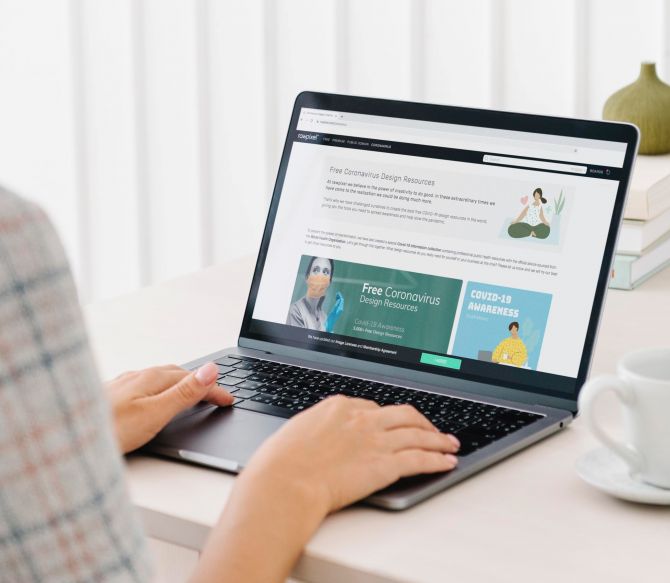Santosh Singh talks about SEO
Google says goodbye to Sitelinks Search Box
Dec 02, 2024
Remember that handy little search box that sometimes appeared below Google search results? The one that let you search a specific website directly...
Mar 09, 2023
by Santosh Singh

Google's algorithms constantly evolve to provide users with the best possible experience. One of the most recent updates businesses should consider is Google's updated link guidance for 2023.
As a digital marketing agency, we believe that understanding these changes are crucial to maintaining high visibility and rankings in search results.
In this blog post, we will explain why Google's updated link guidance matters for your website's visibility and how a quality-focused approach to content marketing can improve your search rankings.
Links play a crucial role in search engine optimisation (SEO) and are one of the most important factors that search engines use to determine the authority and relevance of a webpage. Links signal to search engines that other websites view your content as valuable and trustworthy, which can improve your visibility and rankings in search results.
When a website links to another website, it is essentially endorsing that content and indicating to search engines that it is worth checking out. This is why search engines use links to measure a webpage's popularity and relevance.
Links can also help search engines understand the structure of a website and how different pages are related to each other. This is important because it helps search engines determine the most important pages on a website and how they should be ranked in search results.
In addition to external links, internal linking is also important for SEO. By linking to other pages on your website, you can improve the user experience and help search engines understand the structure and hierarchy of your website.
As links became important in SEO, website owners manipulated them to improve their rankings. Unfortunately, this led to the emergence of various link-building tactics, some of which were considered spammy and low-quality.
In the past, some website owners would purchase links from other websites, exchange links with other websites, or use link farms to generate links in large quantities. However, these tactics were not always effective.
As search engines became more sophisticated, they started identifying and penalising these manipulative tactics. Google, in particular, has been actively updating its algorithms to better identify and penalise spammy link-building practices.
Google's Penguin algorithm, launched in 2012, was specifically designed to target link schemes and manipulative link-building practices. The algorithm penalises websites that have unnatural or low-quality links pointing to their site.
Over time, the focus of link-building has shifted from quantity to quality. Instead of generating as many links as possible, businesses are encouraged to create high-quality content that naturally attracts links from other websites.
This shift in focus has also led to new link-building tactics, such as guest blogging, content marketing, and influencer outreach. These tactics focus on creating valuable content and building relationships with other websites in the same industry rather than manipulating search engines to improve rankings.
Google has recently updated its link guidance for 2023, emphasising the importance of natural and organic link-building. In addition, the updated guidance clarifies what types of links are considered high-quality and which are not.
One of the key changes in Google's updated link guidance is the focus on relevance. Google now considers links relevant to the content of the page they are linking to as high-quality. This means that websites should focus on building links from other websites related to their niche or industry.
Google has also stated that it will continue to penalise websites that use manipulative link-building tactics, such as buying links or participating in link schemes. These tactics can result in penalties or even removal from Google's search results.
Another important aspect of Google's updated link guidance is the emphasis on natural link-building. Google has stated that websites should focus on creating high-quality content that naturally attracts links from other websites. This means businesses should prioritise creating valuable, engaging, shareable content that promotes user engagement.
Google has also stated that websites should focus on building relationships with other websites in their industry. This can be done through guest blogging, influencer outreach, and other forms of content marketing.
Finally, Google has emphasised the importance of monitoring the quality of links pointing to your website. Website owners should regularly audit their backlink profiles and disavow any spammy or low-quality links.
Adopting a quality-focused approach to SEO and link-building can bring numerous benefits to a website. Here are some of the key benefits of this approach:
Google's updated link guidance for 2023 matters for your website's visibility because it prioritises quality over quantity when it comes to links. If you're working with a reputable digital marketing agency, such as Envigo, you can be sure they are up-to-date with the latest SEO strategies. By partnering with an agency with a proven track record of SEO success, you can benefit from their expertise and ensure your website is optimised for visibility and high search engine rankings.
Begin With a Free Quote


Santosh Singh talks about SEO
Dec 02, 2024
Remember that handy little search box that sometimes appeared below Google search results? The one that let you search a specific website directly...


Santosh Singh talks about SEO
Nov 18, 2024
Backlinks are like votes of confidence from other websites. Search engines like Google use them to size up your site's authority and relevance. But...

 close
close